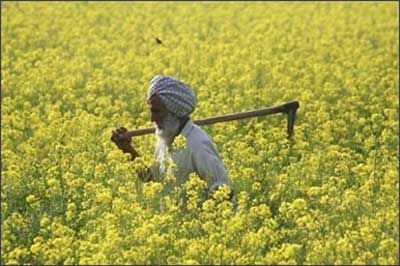 | « Back to article | Print this article |
 In a turn of events, India on Friday said it was “hopeful” talks for a global deal on easing Customs norms, or a trade facilitation agreement (TFA), would be revived in September, even as it failed to meet the July 31 deadline due to lack of consensus among members over food stockholding and farm subsidies.
In a turn of events, India on Friday said it was “hopeful” talks for a global deal on easing Customs norms, or a trade facilitation agreement (TFA), would be revived in September, even as it failed to meet the July 31 deadline due to lack of consensus among members over food stockholding and farm subsidies.
Prime Minister Narendra Modi is scheduled to visit the US in September to meet US President Barack Obama.
On Sunday, WTO Director General Roberto Azevêdo had a telephone conversation with Commerce Minister Nirmala Sitharaman, to understand India’s “real demands”.
“Our concern is not food security but specifically, food stockholding. There is a difference between the two. We are sure American lobby groups will understand this and coax the US to give in for return of TFA. And, once the US is ready to compromise, others will fall in place. We only pushed the deadline till September, we did not kill it (the TFA) forever. We have no problem with the TFA,” a senior commerce ministry official told Business Standard.
It was learnt Azevedo was “dissatisfied” with India’s stance and asked it to narrow its proposal within the parameters of what was presented by India when the WTO General Council was suspended on July 25, said senior commerce department officials involved in the talks.
As a result, India on Monday narrowed its proposal to two primary demands, as an alternative to what it had initially sought in lieu of signing the protocol related to the TFA, aimed at reducing transaction costs through simplified Customs norms.
The two options India asked the WTO director general to consider related to explaining the meaning of “excessive rate of inflation”, as was stipulated under the WTO’s agreement on agriculture, based on which food subsidy calculation was arrived at.
India proposed to revise the external reference price (ERP), based on which farm subsidy was calculated, according to WTO norms, to a more contemporary period. Currently, the ERP of 1986-1988 is taken into consideration for calculating the quantum of subsidies provided by each member country. Besides, as an alternative, India proposed India and other developing countries be allowed to avail of the so-called ‘peace clause’ until a permanent solution was arrived at, and not until December 2017, as was agreed at the Bali ministerial.
Additionally, India also assured a permanent solution on food stockpiling and subsidies would be worked out soon. “We know asking for an indefinite peace clause will (make developed countries worry India will run away with the clause). Therefore, we said ‘we are ready to negotiate a permanent solution to counter such claims’,” said an official.
On Friday, the WTO secretariat went on a month-long summer break; it will resume work on September 1. Before breaking, the WTO chief said failure to meet the deadline to sign the TFA protocol by July 31 would have “significant consequences”, even as he urged members to try and seek a compromise.
“Every country guards its domestic interests zealously and India’s stance of pursuing parallel progress on trade facilitation and food security at the WTO is a principled step,” said Pradeep S Mehta, founder and secretary-general of trade advisory body CUTS and member of the WTO’s high-level panel on the future of trade.